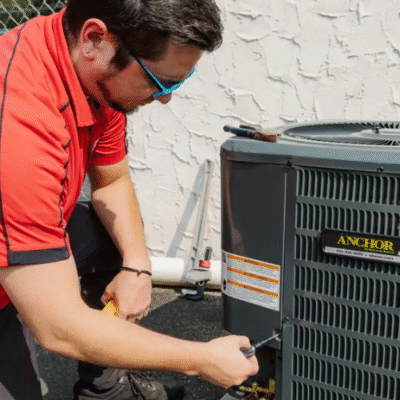The world of finance is undergoing a profound shift, driven by the convergence of blockchain technology and traditional asset markets. One of the most revolutionary concepts in this space is RWA tokenization, which refers to the process of converting real-world assets into blockchain-based tokens. This innovation is not just changing how people invest but also reshaping the accessibility, liquidity, and transparency of financial markets. Cireta has emerged as a leading company in this field, offering innovative platforms and solutions to make RWA tokenization secure, compliant, and widely accessible.
Understanding RWA Tokenization
RWA tokenization is the process of representing physical or financial assets as digital tokens on a blockchain. Each token serves as proof of ownership, rights, or a share in the underlying asset. This process bridges the gap between traditional markets and decentralized finance, allowing investors to access opportunities that were once reserved for large institutions.
Assets that can be tokenized include real estate, commodities, fine art, private equity, bonds, and infrastructure projects. By tokenizing such assets, the financial system gains new levels of efficiency, reducing costs while increasing participation from investors worldwide.
Why RWA Tokenization Matters
Traditional financial systems often face challenges such as high barriers to entry, limited liquidity, and geographical restrictions. RWA tokenization solves many of these issues by introducing a blockchain-based ecosystem where assets are more easily tradable and accessible.
The significance of tokenization can be explained through its key benefits:
-
Fractional ownership: Investors can buy smaller fractions of high-value assets, making opportunities such as real estate or rare art accessible to a wider audience.
-
Liquidity creation: Assets that are traditionally illiquid, such as property or private equity, can now be traded more easily in secondary markets.
-
Global accessibility: Tokenized assets can be accessed and invested in across borders, removing geographical limitations.
-
Transparency and security: Blockchain provides immutable records of transactions and ownership, reducing fraud and disputes.
-
Cost efficiency: By removing intermediaries, tokenization lowers transaction costs and accelerates settlement times.
These benefits explain why RWA tokenization is gaining global traction as a transformative force in finance.
Types of Assets Suitable for RWA Tokenization
The scope of tokenization is vast, covering a diverse set of industries. Some of the most common asset classes include:
-
Real estate: Properties can be tokenized to allow investors to purchase fractional shares of a building, apartment, or land.
-
Commodities: Precious metals like gold, silver, and other resources can be represented as tokens, making them easier to trade digitally.
-
Private equity and debt: Startups and companies can raise funds by issuing tokenized equity or bonds, creating new fundraising channels.
-
Art and collectibles: Tokenization enables shared ownership of fine art, rare collectibles, and luxury items.
-
Infrastructure projects: Large-scale developments such as energy plants and transportation systems can attract investors through tokenized models.
This flexibility makes RWA tokenization relevant across industries and highly adaptable for diverse investment needs.
Cireta’s Role in RWA Tokenization
Cireta has positioned itself as a leading player in the RWA tokenization ecosystem by offering solutions that combine blockchain technology with regulatory compliance and investor accessibility. The company’s platforms provide the infrastructure needed to tokenize assets while ensuring security and trust.
Cireta’s approach focuses on several core areas:
-
Compliance: Ensuring all tokenized assets meet regional and international regulatory requirements.
-
Security: Building secure platforms for the issuance and trading of digital tokens.
-
Education: Helping investors understand the opportunities and risks of tokenization.
-
Accessibility: Lowering barriers so both institutional and retail investors can participate in tokenized markets.
Through these initiatives, Cireta plays a crucial role in making RWA tokenization a mainstream financial tool.
Benefits for Investors
Investors are among the biggest beneficiaries of RWA tokenization. Some key advantages include:
-
Diversification: Investors can gain exposure to new asset classes that were previously unavailable.
-
Lower entry barriers: Tokenization allows even small-scale investors to participate in high-value markets.
-
Liquidity: Unlike traditional assets, tokenized assets can often be traded quickly and efficiently.
-
Transparency: Blockchain ensures ownership and transactions are verifiable, reducing risks.
-
Global investment opportunities: Investors can access assets located in different regions without the limitations of borders.
These benefits open up opportunities for investors to create more flexible and inclusive portfolios.
Challenges of RWA Tokenization
While the potential of RWA tokenization is significant, it also faces challenges that must be addressed for widespread adoption.
-
Regulatory uncertainty: Financial regulations vary across regions, and ensuring compliance is complex.
-
Market maturity: Tokenization is still in its early stages, requiring broader adoption and infrastructure development.
-
Technological barriers: Scalability, interoperability, and cybersecurity remain critical issues.
-
Liquidity concerns: While tokenization enables tradability, secondary markets for many tokenized assets are still evolving.
Cireta is actively working to overcome these challenges by building platforms that prioritize compliance, security, and ease of use.
Real-World Use Cases of RWA Tokenization
RWA tokenization is already making an impact across multiple industries:
-
In real estate, high-value commercial buildings are being tokenized to attract global investors.
-
In commodities, gold-backed tokens provide secure and efficient ways to invest in precious metals.
-
In art and collectibles, fractional ownership models are enabling wider participation in expensive artworks.
-
In infrastructure, renewable energy projects are being funded through tokenized investment structures.
These examples illustrate the practical applications of RWA tokenization and its potential to reshape global markets.
The Future of RWA Tokenization
Looking ahead, the adoption of RWA tokenization is expected to grow rapidly as regulatory frameworks become clearer and blockchain technology advances further. Institutional investors are showing increased interest, recognizing the potential for liquidity and accessibility.
Emerging trends such as decentralized finance will integrate more closely with tokenized assets, creating innovative financial products. As tokenization becomes more widely adopted, it will play an essential role in the future of global financial systems.
Cireta, with its focus on innovation, compliance, and accessibility, is well-positioned to lead this transformation. By building platforms that combine cutting-edge technology with trust and security, the company is driving RWA tokenization into the mainstream.
Why Cireta is a Trusted Partner
When exploring tokenization, choosing a reliable partner is essential. Cireta distinguishes itself by its commitment to transparency, regulatory compliance, and investor empowerment. The company not only provides the technology but also ensures that investors feel confident and secure in participating in tokenized markets.
Conclusion
RWA tokenization represents a revolutionary shift in how assets are managed, traded, and accessed. By enabling fractional ownership, increasing liquidity, and breaking down geographical barriers, it is redefining global investment opportunities. While challenges remain, the future of tokenization is bright, with companies like Cireta leading the way.
As the world continues to embrace digital transformation, RWA tokenization will serve as a cornerstone of the new financial era. With Cireta driving innovation and accessibility, both institutional and individual investors can look forward to a more inclusive, transparent, and efficient financial landscape.




